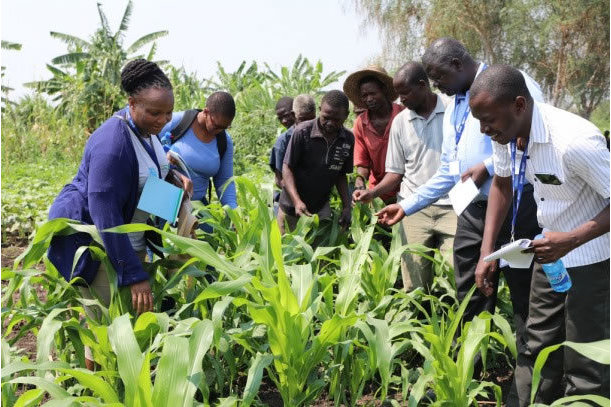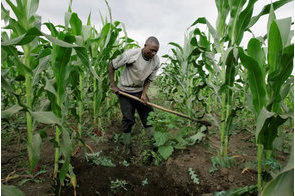FAO to establish Farmer Field Schools in Nigeria to boost agriculture

Summary
The FFS is an initiative of FAO that supports the most at-risk farming households.
The Food and Agriculture Organisation of the United Nations (FAO) has announced that it plans to establish 100 Farmer Field Schools (FFS) in Northeastern communities of Nigeria to boost agricultural production in the country this year.
The FFS is an initiative of FAO that supports the most at-risk farming households. It brings together farmers and herders or fisher-folk to learn sustainable production practices and understand complex agro-ecosystems and ecosystem services. It is usually an interactive and participatory ‘learning by doing’ approach involving 20-25 farmers, pastoralists or fisher-folk and a trained facilitator.
According to a statement released on Thursday, the United Nations body also said it needs about $18 million to meet the needs of agro-based households in the crisis-ridden North-East. FAO revealed that it has so far trained 51 agricultural experts in the region.
Following the training of 25 agricultural officers from government, agricultural agencies and non-governmental organisations as facilitators and the establishment of FFS community groups, the second of FFS facilitators graduated on August 18, 2018, in Maiduguri, Borno.
Additionally, 26 experts across the three Northeastern states of Adamawa, Borno and Yobe were trained between July and August, 2018.
The three-week-long intensive workshop equipped experts supporting conflict-affected farmers in the North-East with the skills to set up and run at least two FFS per facilitator.
“FAO’s work in the North-East goes far beyond the provision of livelihood-saving agro-inputs like seeds and fertilisers,” said Suffyan Koroma, the representative of FAO in Nigeria. “We work closely with farmers to ensure that (the) inputs they receive are being properly utilised; that they are employing the most effective techniques in management of their crops and animals; and generally, ensuring farming households have the best conditions to boost their resilience.”
Koroma added that smallholder farmers face huge hurdles in managing increasingly complex agro-ecosystems. The statement also said that FAO has delivered seeds and fertilisers to about 100,000 households as of July.
However, access to land remains a key issue as numerous communities are restricted to only small parcels of land for production as traditional growing and grazing areas cannot be used due to lingering security risks. Hence, farmers rely on sharecropping – planting on land belonging to others in exchange for a portion of harvest – or rent less than one hectare of land for subsistence agriculture.
According to the Displacement Tracking Matrix released in June, about 1,549,630 people had returned to their original communities.
FAO also stated that returnees, host communities and internally displaced people require urgent support to resume their livelihood; 80 percent of which is estimated to be agriculture-based.
Related
-
IFAD projects improve food security among rural poor in Nigeria
Notable achievements were recorded with regard to access to finance, community capacity-building and job creation.
-
Bill Gates, others announce new $790mn funding for agriculture resilience
Climate change, which is bringing more droughts, flooding and extreme weather events, is already taking a severe toll on ...
-
Solidaridad strengthens partnership with Nigeria on Sustainable Development Goals
In collaboration with cocoa companies in Nigeria, Solidaridad has trained over 27,000 farmers in cocoa production.









